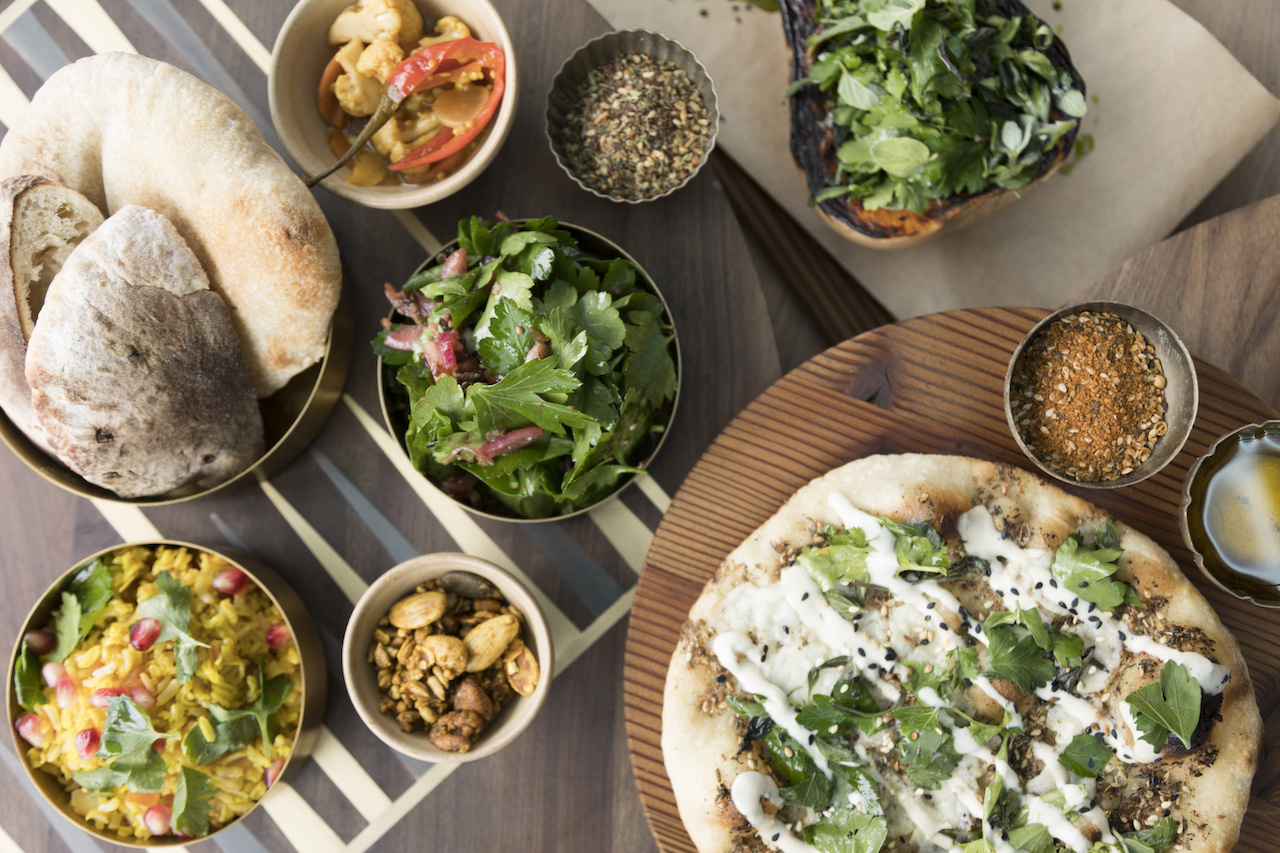
All over the world people deeply care about the environment and are making lifestyle choices and buying decisions based on those values, attitudes and preferences. This is a big reason why sustainability in hotel restaurants is on the forefront now more than ever. Getting fresh food locally clearly has its health benefits by maintaining its important nutrients, but obtaining food within the area not only supports the local economy, it has a better carbon footprint as the food has less road to travel, and it helps with food waste.
Green Pearls® Unique Places partners with hotels based on their sustainable expertise and green projects. Here are a few of their food-forward European hotels.
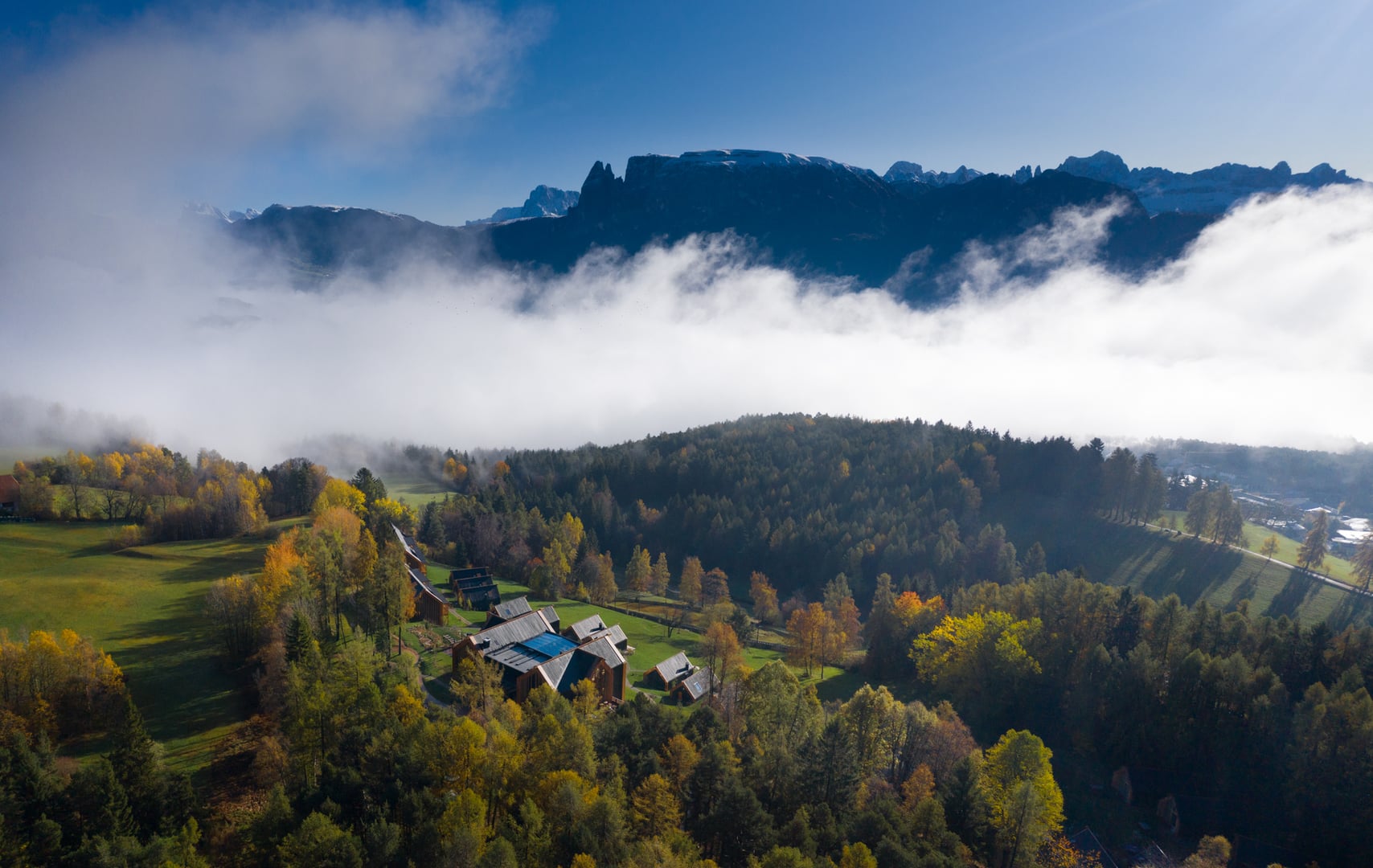
ADLER LODGE RITTEN
The five-star ADLER Lodge RITTEN sits at the base of the Italian Dolomites in the center of the South Tyrol near the city of Bolzano. The secluded forest resort overlooks a tranquil lake and focuses on well-being. The hosts introduce their guests to the uniqueness of the South Tyrol from a culinary perspective. ADLER Lodge RITTEN works closely with innovative farms owned by small and medium-sized producers who rely on organic farming to produce solely regional products according to ecological principles.
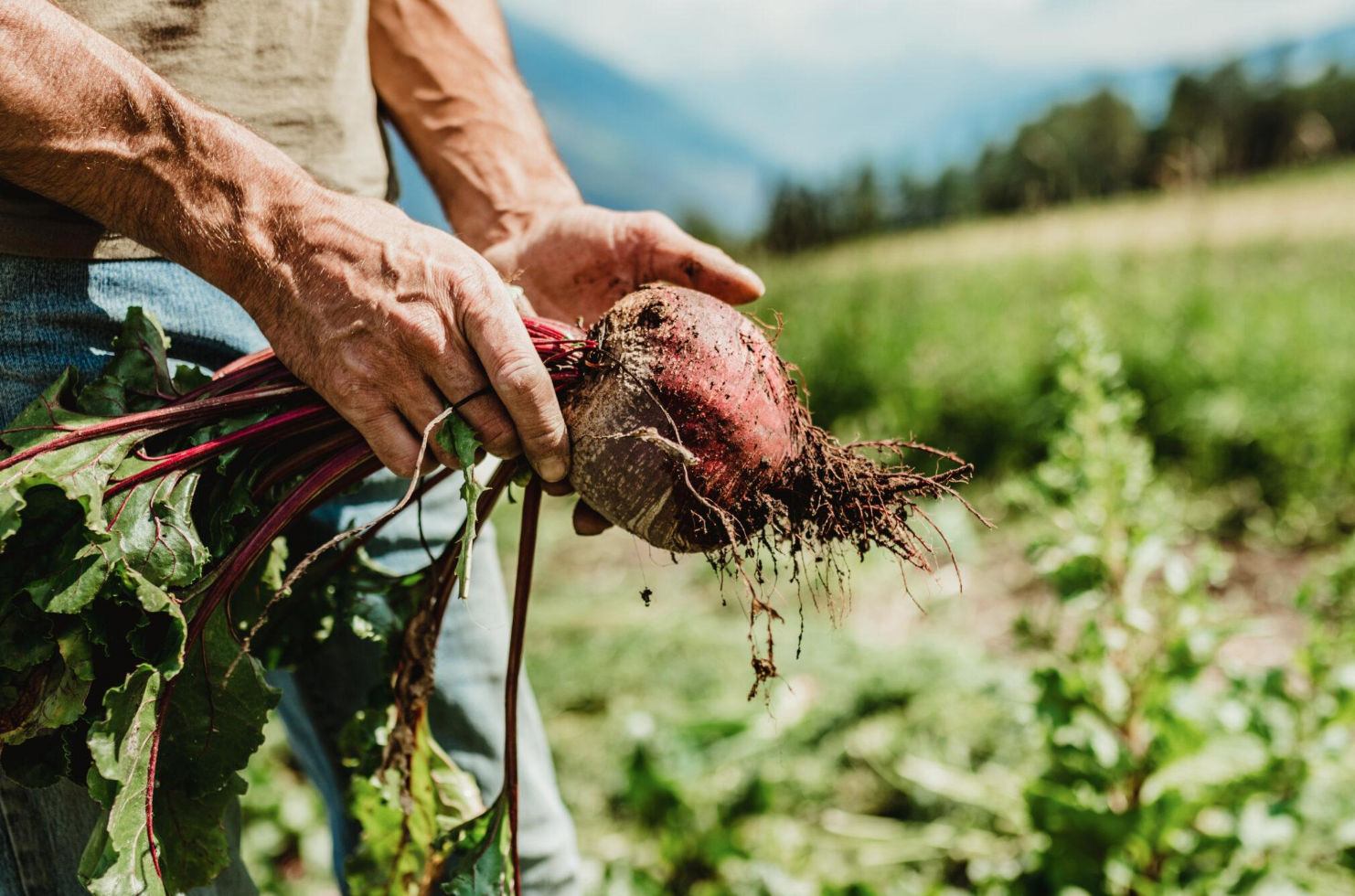
ADLER Lodge labels products from the area with its own “Adler Regional Partner” seal. Tyrolean farmer Harald Gasser has breathed new life into more than 400 almost-forgotten vegetable varieties. On the ADLER’s menu you will find primeval carrots and radishes.
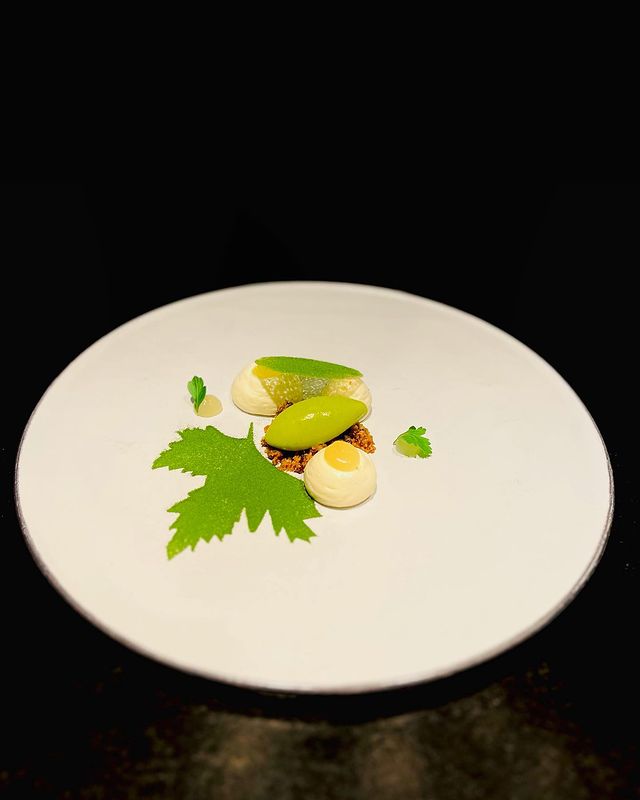
Milk for cheese is provided by the typical South Tyrolean gray cows which graze on the neighboring lush meadows. The kitchen team and the cheese dairy Hof zu Fall (Siusi) work together to develop natural and aromatic mountain cheeses.
The organic wheat for the homemade bread and croissants grows in the Val d’Orcia about five minutes from the ADLER Thermae and is traditionally ground in the artisan stone mill Mulino d’Orcia.
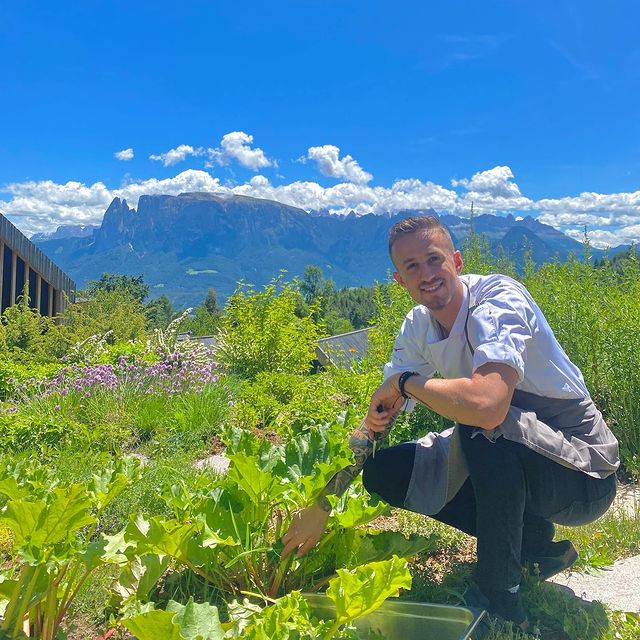
Other products allowed to bear the resort’s quality seal include different types of fruit, crunchy cabbage vegetables from Val Venosta (VI.P Coop), ADLER tea blends from organic herb cultivation (Pflegerhof), and meat from Wagyu cattle (Oberweidacherhof). There are products from Tuscany such as organic honey varieties, ancient and revitalized cereals and legumes, and rare and environmentally friendly planted chickpeas. Wine is produced in the local valley, as is the extra virgin olive oil and the Agrodolce vinegar.
South Tyrolean Award-winning Chef Hannes Pignater maintains his roots creating fresh interpretations of South Tyrolean classics bringing his skills from working overseas to the dining room. It’s a foody’s delight with sumptuous meals and appetizers prepared in an open kitchen served with free-flowing wine, all included in the room package.
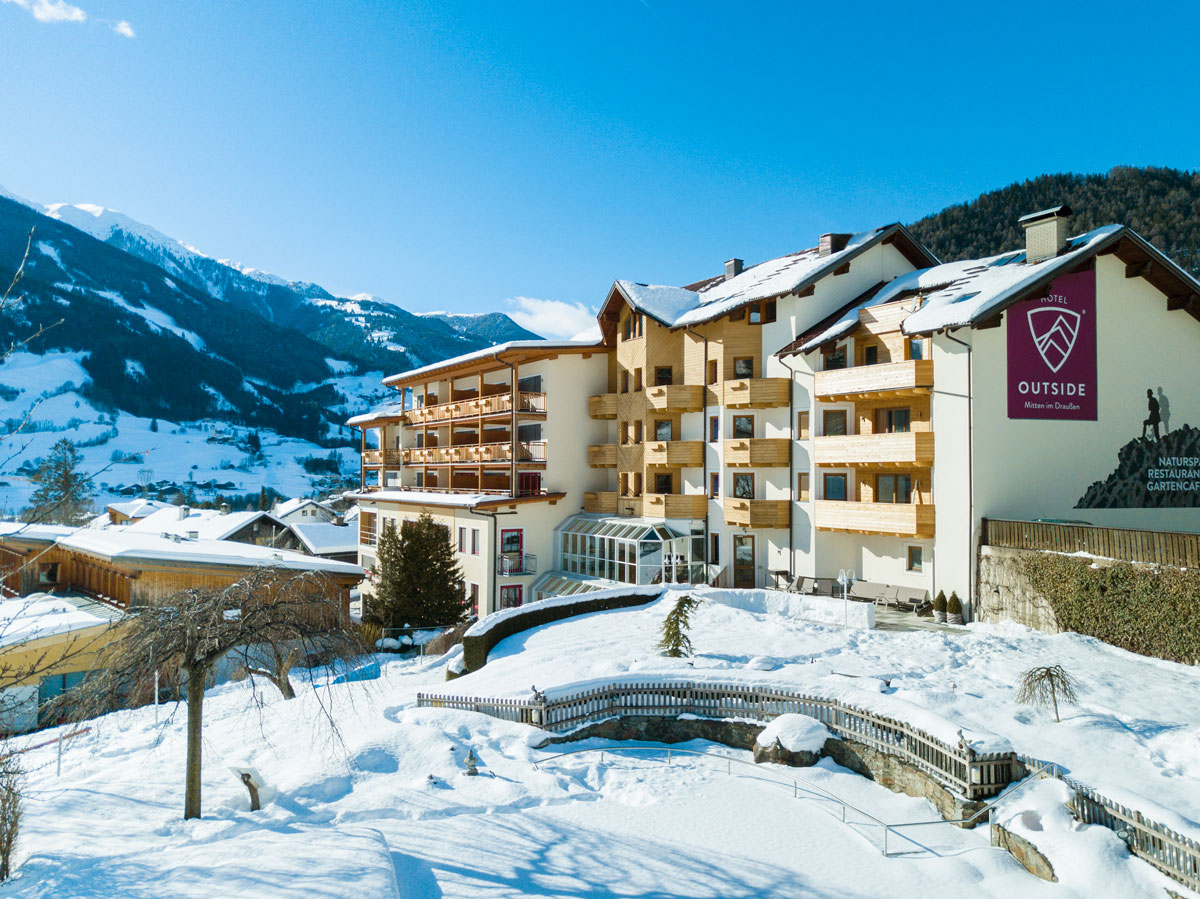
HOTEL OUTSIDE
Moving to Austria in the East Tyrol nestled in the middle of the National Park Hohe Tauern is the Hotel Outside in Matrei. For the hotel, environmental protection is as substantial concern as hospitality, and the property has won numerous awards in this category.
Eating well is also of utmost importance, and OUTSIDE delivers with its innovative Alpine and Mediterranean cuisine. According to seasonal availability, the basis for their traditional regional food is prepared in contemporary and surprising ways, re-imagining local ingredients.
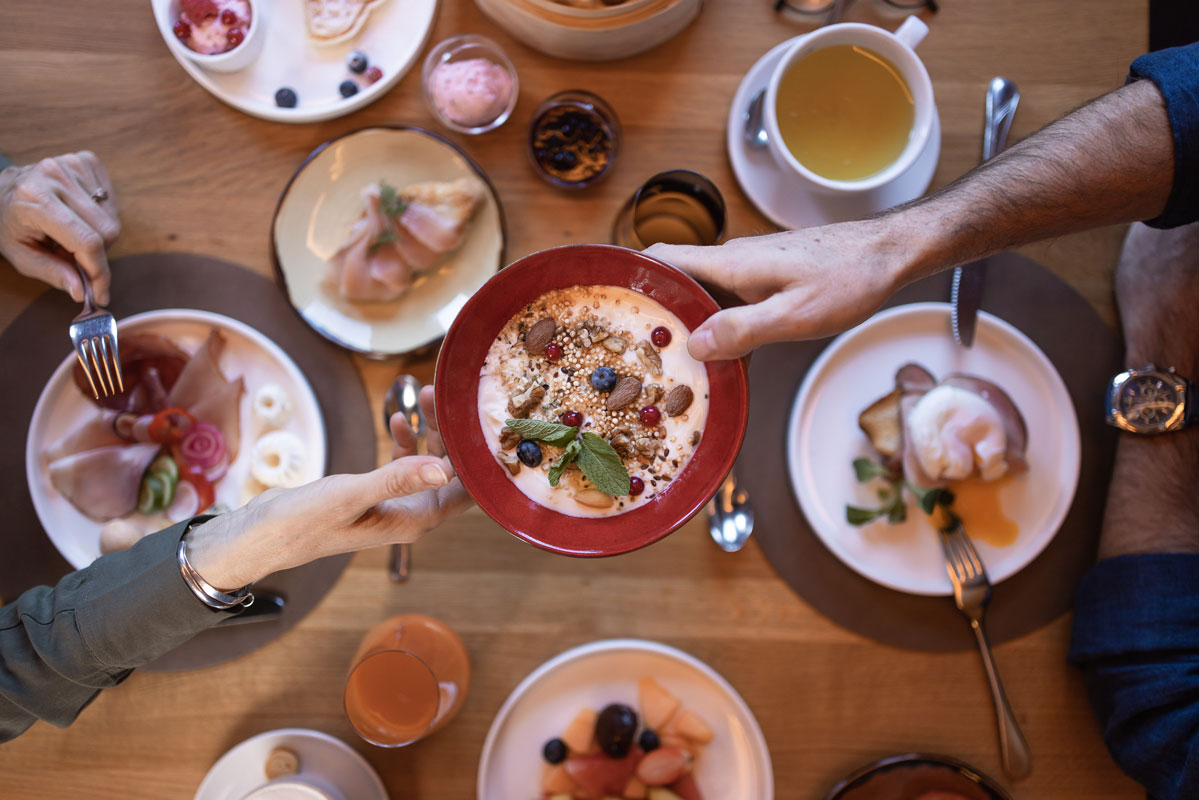
Breakfast comes from farmers the staff know and dealers they value from the region. The milk, cheese, sausage and eggs are guaranteed to be fresh with genuine taste. Host Joseph Ganzer bakes fresh homemade brown bread daily using an old family recipe with corn from Tyrol. Whatever tickles his fancy shows up in the bread-crust, sometimes adding walnuts, pumpkin seeds, poppy seeds or sesame seeds. And the hotel makes its own jams and syrups. Habit forming!
Chef has been working in the kitchen of the Hotel Outside for almost 20 years and is responsible for the daily afternoon snack, the evening 6-course gourmet menu, a daily vegan and vegetarian work of art, and the weekly gala dinner. Originally from Bosnia-Herzegovina, he impresses guests with his down-to-earth and imaginative creations.
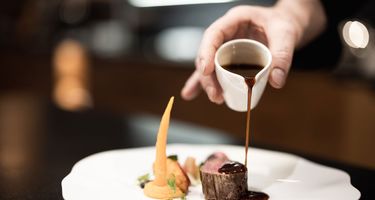
“Cook what the gourmet region of East Tyrol has to offer,” is the kitchen philosophy.: “We want nothing less than to surprise the senses and impress the palate. And do so sustainably.”
To meet this high standard, the quality of the ingredients is crucial. They are sourced from organic producers or from the hotel’s own garden. Homemade products are also on the tables in the restaurant. The meat is supplied from Mühlstätter butcher’s shop in Matrei.
It is important to Radenko and his team that the path of the food remains traceable. “The shorter the route, the fresher the vitamins. The closer the (mountain) farm, the better the taste.” Simple as that, and so good!

CERVO MOUNTAIN RESORT
Surrounded by the Swiss Alps and beauty of Zermatt is the 5-star Cervo Mountain Resort. Founded in 2009, the hotel is rooted in environmental awareness with ecological and social responsibility a central principle.
The resort works closely the organization SlowFood. SlowFood supports high-quality food production threatened by extinction, protects unique regions and ecosystems, preserves traditional processing techniques and promotes autochthonous animal breeds and plant species. The Head Chef, Markus Kessler, is part of the alliance of the chefs of Slow Food.
The rule of thumb at CERVO is to buy everything within a 150 km radius, the ingredients are almost always local and seasonal for all four of their restaurants. The long-term plan of the hotel is to put mostly home-grown food items at the breakfast tables: As the hotel has already planted trees, all the fruit used for jams and dried fruit will come from their cultivation-as well as nuts and honey.
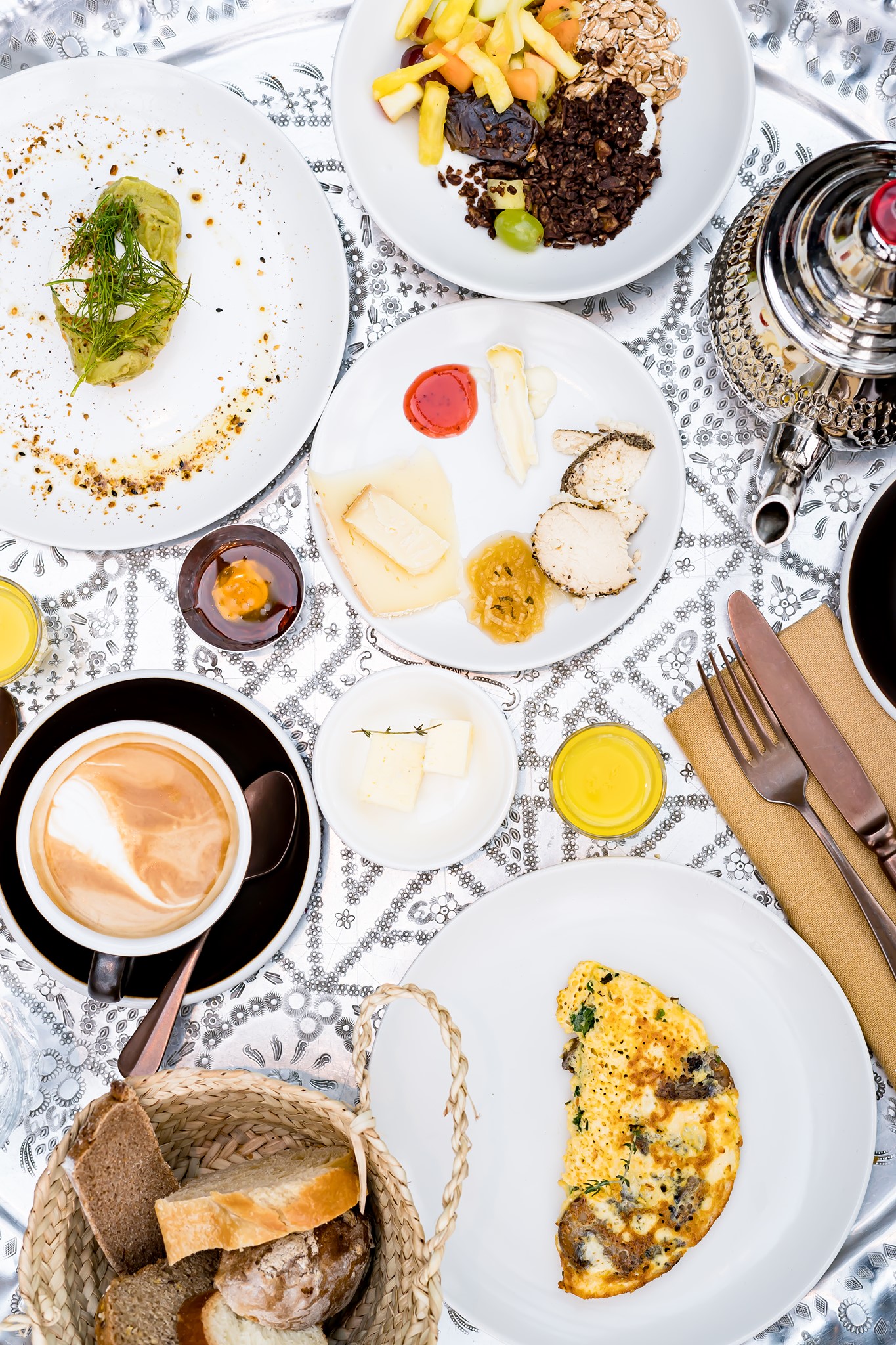
Herbs have been cultivated at CERVO for many years, and now guests can pick them fresh to use in their tea. Meat is sourced from a regional Natura-Beef farmer, buying only whole animals, utilizing the nose-to-tail principle to maintain influence as to what happens to the cattle and how the animal is carved, kept and aged after the slaughter process.
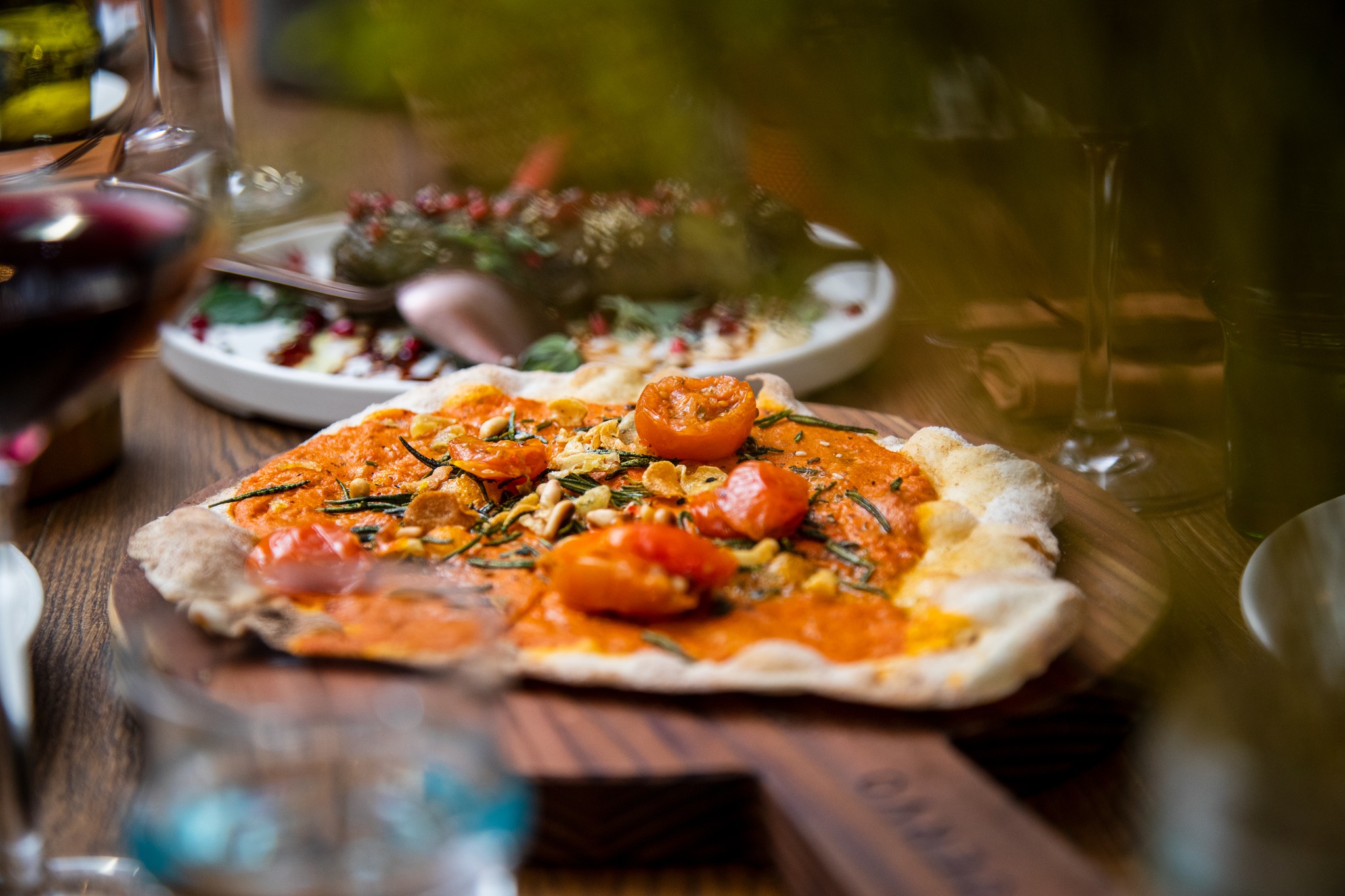 In the Italian restaurantMadre Nostra, the Roman Davide Cretoni is in the lead. In his opinion, sustainable cuisine is based on three important pillars: reduce, recycle and reuse. That means only buying as much as you can actually consume and recycling and reusing what is left over. “Sustainable cuisine represents a new era that also pays respect to the consumer through transparency. What ingredients are used, where they come from and how they are prepared is something more and more guests are interested in. A conscious understanding of what is on the plate contributes to a responsible approach to food.”
In the Italian restaurantMadre Nostra, the Roman Davide Cretoni is in the lead. In his opinion, sustainable cuisine is based on three important pillars: reduce, recycle and reuse. That means only buying as much as you can actually consume and recycling and reusing what is left over. “Sustainable cuisine represents a new era that also pays respect to the consumer through transparency. What ingredients are used, where they come from and how they are prepared is something more and more guests are interested in. A conscious understanding of what is on the plate contributes to a responsible approach to food.”
